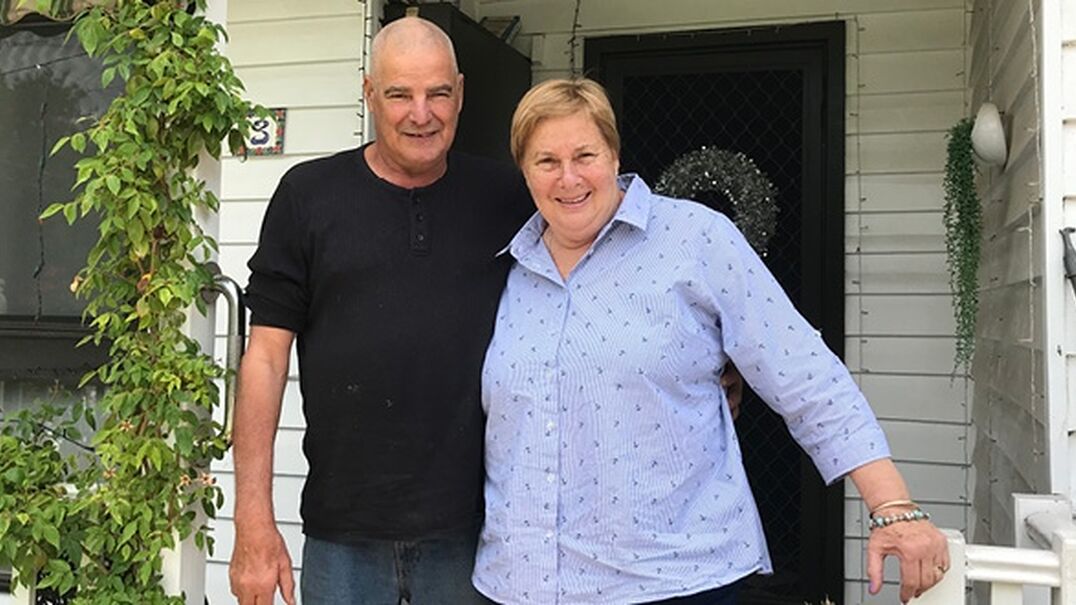We spoke to one of our foster carers about her experience of opening her home to children and young people in need. Jodie is a single foster carer who lives with her dog, a spaniel named Jessie. She works full-time as a logistics engineer while studying behavioural science part-time, and is also a board member for a not-for-profit organisation.

Since becoming a carer in November 2017, Jodie has provided all types of foster care – emergency, respite, short term and long term – including looking after brothers aged 13 and 11 for an emergency 3-night placement. But Jodie’s longest placement has been a 14-year-old who has been in her care for the last 6 months.
So, you might wonder, how does Jodie balance her work and study commitments while fostering? She points to her case manager’s invaluable support and to her own resilience.
What or who encouraged you to become a foster carer?
When I was a growing up, one of my close family friends was in foster care. I also attended a primary school where many of the other students were less fortunate than my family, which was something that really affected me, even as a child.
Coincidentally, my sister is also a foster carer – we applied at the same time without telling each other.
What do you enjoy most about fostering and what do you feel are the greatest rewards?
In a nutshell - it’s fun. All the children and young people who have come into my care have been funny, each in their own unique ways. It brings me joy to know that they feel comfortable enough in my home to joke around a bit.
What have been some of the more challenging moments caring for an adolescent? How did you overcome these?
The current adolescent in my care has some behavioural issues. Their case manager and I have worked to put structures in place, and while it has been a long journey, they have shown some really positive change.
I also cared for a young boy who had been kicked out of home by his parents. This was particularly challenging because he was upset and desperately wanted to live with his family, but wanted the independence to make his own life choices.
We talked a lot over the 3 weeks that he stayed with me. Most of the time he just wanted someone to listen, occasionally I offered some advice. He ended up being able to return home.
What kind of support is available for foster carers and what do you find most valuable?
As a relatively new carer I have been quite surprised by the amount of support.
As a single, full-time worker, I doubt I would have been able to handle a full-time placement without it. Matt, my case manager, is really responsive to questions (when I first started caring there were a lot of them!). He is also very helpful with the logistics of having a young person in your life. I think the most valuable support has been having an ear to vent to on the odd occasion.
What have you learnt about yourself since becoming a foster carer?
I’ve learnt a fair bit about myself. I’m definitely more resilient than I once thought.
I’m also able to think outside the square a bit, which comes in handy when you are caring for a pretty intelligent 14-year-old!
What advice would you give to people who want to become foster carers?
I attended a training course when I first started and heard an experienced carer say: “Some nights I go to bed and think this is all too hard and I should give up, then I wake up in the morning and realise that it’s actually okay”. Without knowing it, she offered me reassurance and advice, I would give that same advice to prospective carers.
Whether they are 7 or 17 years old, they are kids and they are going to challenge you. But at the end of the day, they simply want to be in a safe place with someone who cares about them and their wellbeing.
What do you hope that the children who stay in your care will remember from their time with you?
That no matter the reason for them being in my home, they had a safe place where they could just be kids, be themselves and have a bit of fun.
A little of your time can change an entire life.
Foster caring is one of the most meaningful and vital contributions you can make to our community.
We know that it can be a daunting prospect, especially because it’s full of unknowns. There are many options to caring for a child including providing emergency accommodation, respite care, or regular, ongoing care.
Read more about becoming a foster carer





